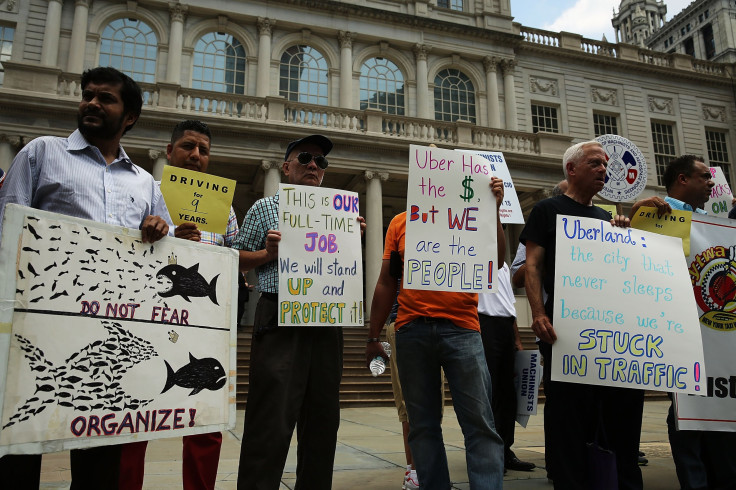Uber Drivers Plan New York City Protest, Slam Reduced Fares As A ‘Wage Cut’

Uber drivers are taking to the streets — and some may turn off their apps.
Drivers for the popular ride-hailing service in New York City are expected to protest outside the company’s Queens headquarters on Monday. Rally organizers also called on Uber drivers to go on strike, though it remains unclear how many will heed the call or if the action will disrupt service at all. The reason for the latest flare-up: Uber’s decision last week to slice fares by 15 percent.
The drop in prices amounts to a “wage cut” for drivers, according to the New York Taxi Workers Alliance, which called on drivers to protest Monday.
“No driver wins this bidding war,” the group’s president Bhairavi Desai told the New York Post. “What’s being auctioned off is their livelihoods, and that’s unacceptable. It’s a race to the bottom.”
Uber disagrees, saying the reduced fares actually translate into more take-home pay by boosting customer demand. Over the past weekend, it said, drivers spent 39 percent less time without a fare and a 20 percent increase in hourly earnings compared to two weekends before.
“We expect this positive trend to continue, but if for any reason the price cuts are not giving drivers more business and better earnings, we will consider changing them as we have in other cities,” an Uber spokesman said. “Price changes need to work for drivers.”
Uber and its chief competitor Lyft have regularly come under fire for their labor practices. Most notably, both companies have been accused of misclassifying their drivers as independent contractors rather than employees — a distinction that exempts the companies from laws mandating minimum wage and overtime pay, among other regulations.
Lyft recently settled a major federal lawsuit on the subject from a group of California drivers for $12.25 million. It did not agree to reclassify any of its drivers as part of the settlement. The Uber case is slated for trial in June.
© Copyright IBTimes 2025. All rights reserved.






















